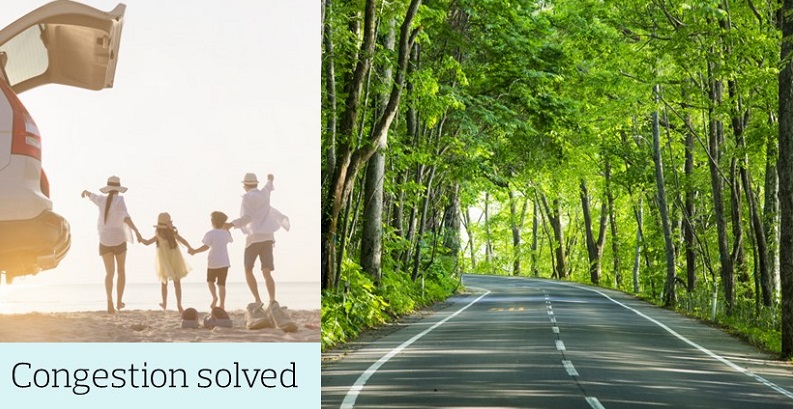I went to London for a meeting on Friday which meant I cycled to the station first thing in the morning. (I promise you this get’s more interesting later…)
I felt an odd sensation as I did so: safe.
The reason was that the roads were quiet. Very quiet. I cycled comfortably and even turned right from a main road to a minor road without any fear! There were few people out and about in cars because Friday is a working-at-home day for all those white collar workers who have the flexibility, the schools are on holiday and it’s August so lots of people have flown off to sit on an inferno beach.
I admit this is hardly a deep, incisive or novel observation. But it came back to me as I was reading the Transport Select Committee’s report on the Strategic Road Investment. The report is mixed...but that’s the not the point; the point is that the topic of discussion is £20-30 billion spend on building and maintaining roads.
Roads are a public service, free at the point of delivery, funded out of general taxation. Like the NHS, which is also a public service, free at the point of delivery, funded out of general taxation, there is an essentially infinite demand and, as a society, we choose to match supply to demand by queuing: it’s first come, first served and, if more people want to use it at the same time than can fit into what we have then the waiting list grows (or, as we say in transport, we have “congestion”.)
This means that spending on roads is, quite rightly, a political question: politics, is, after, what we call the process of agreeing how our society will work. The performance of the Department for Transport, National Highways (in the case of the Select Committee report), and other authorities responsible for roads are evaluated and there is frequent public debate about how much money should be spent on roads and arguments rage about the relative priorities of “motorists”, “cyclists”, “pedestrians” and how we can best clean the air and dump less carbon into the atmosphere.
On Friday mornings in August, however, we don’t need to spend lots of money on roads – there is plentiful supply- and there is little conflict to be had between those in cars and those on bicycles or shank’s pony.
This is a major triumph for the Department for Transport who have solved part of the congestion problem without spending a penny on road building or maintenance and we look forward to them rolling out similar measures to reduce and remove congestion for the rest of the week, across the network.
Well that’s a rather heavy handed bit of sarcasm, I admit…but it makes the point that at the moment the Department for Transport is working with one-hand tied behind its back. If, as a society, we want to get the best value for all that money we spend on roads then we should, surely, recognise that both supply and demand interact in our transport network and having the government department responsible focus almost exclusively on one side of the equation is unlikely to deliver the optimum outcomes for us.
The acceleration of flexible working conditions, enabled by technology, which was caused by the epidemic was an interesting “natural experiment” that has demonstrated how quickly and deeply the social and cultural habits that underpin our planning assumptions can be changed…if the incentive is strong enough. What would it take to change the scheduling of summer holidays in the UK, or the ways that children get (or get taken) to school in the morning? I have no idea but I do know that the Department for Transport has no particular mandate to answer (or even ask) those questions and, so far as I know, neither has any other part of government. This seems to me an opportunity missed.

